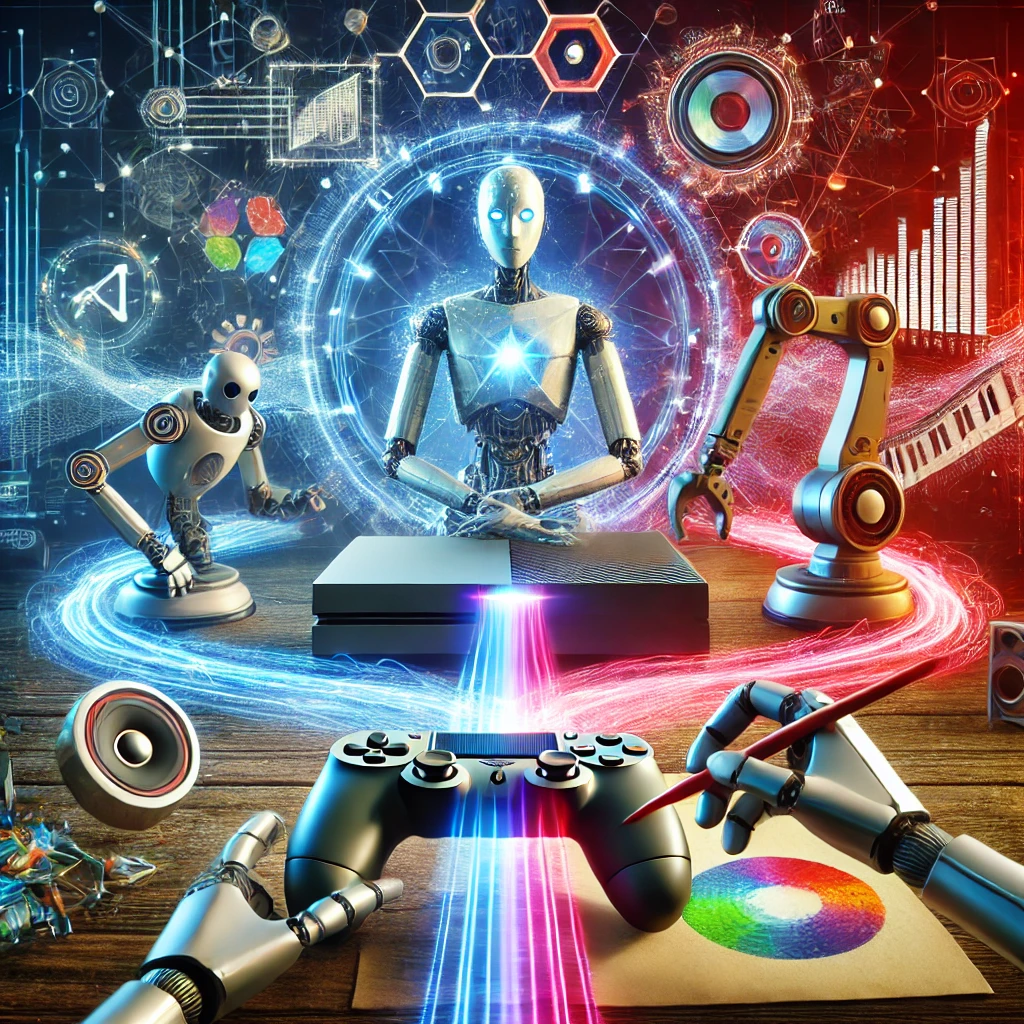Artificial Intelligence (AI) has revolutionized the entertainment industry, bringing unprecedented levels of creativity, interactivity, and personalization. From enhancing video games with intelligent characters to automating content creation, AI is reshaping how entertainment is produced and consumed.
AI in Gaming
Video games are one of the earliest and most prominent areas where AI has had a profound impact. With AI, games are becoming more immersive and dynamic, providing players with richer experiences.
- Intelligent NPCs
Non-playable characters (NPCs) are a critical part of many games. AI algorithms enable NPCs to:
Adapt to player behavior: Creating more challenging and lifelike opponents.
Offer dynamic storylines: Adjusting the narrative based on player choices.
Learn and improve: Using reinforcement learning to make NPCs smarter over time.
- Procedural Content Generation (PCG)
AI-powered PCG creates game environments, levels, and missions in real time, offering virtually endless gameplay. Examples include:
Rogue-like games: Randomly generated dungeons and challenges.
Open-world games: Expansive, dynamic environments populated by AI-driven elements.
- Player Behavior Analysis
AI monitors player actions and preferences to:
Customize difficulty levels.
Provide tailored recommendations.
Detect cheating: Ensuring fair gameplay in multiplayer environments.
- Enhanced Graphics and Animation
AI aids in creating realistic graphics, facial animations, and motion capture. Tools like NVIDIA’s DLSS improve visual quality and performance, while generative AI techniques streamline character and world design.
AI in Content Creation
AI has become an invaluable tool for creators, enabling the generation of unique and high-quality content faster and more efficiently.
- Automated Storytelling and Scriptwriting
AI models like GPT can generate scripts, plotlines, and dialogues for movies, TV shows, or video games. This technology assists creators by:
Providing new ideas and inspiration.
Drafting initial versions of scripts, saving time for writers.
- Music Composition
AI tools like Amper Music or AIVA compose music tailored to specific genres or moods. They assist:
Film and game producers: By creating custom soundtracks.
Independent artists: Offering a cost-effective way to produce high-quality music.
- Video Editing and Post-Production
AI simplifies complex editing tasks such as:
Color grading: Enhancing visuals to match the desired aesthetic.
Scene detection: Automatically organizing footage for efficient editing.
Special effects: Adding realistic CGI or virtual backgrounds seamlessly.
- Content Personalization
Streaming platforms like Netflix and YouTube rely on AI to recommend content based on user preferences, viewing history, and engagement patterns. This personalization keeps users engaged longer and improves their experience.
Real-World Examples
Gaming
The Last of Us Part II: Used AI to create realistic NPC behavior and emotional storylines.
Minecraft: Incorporates procedural generation to build endless worlds.
AlphaStar by DeepMind: Defeated human professionals in the strategy game StarCraft II.
Content Creation
DeepFake Technology: Creates lifelike video overlays for movies and viral content.
RunwayML: AI-powered video editing for independent creators.
OpenAI’s DALL·E: Generates unique visual art for digital storytelling.
Challenges and Ethical Concerns
Despite its benefits, the use of AI in entertainment raises concerns:
Ethical use of AI: Questions about deepfake misuse and originality in AI-generated content.
Job displacement: Concerns about automation replacing human roles in creative industries.
Data privacy: Potential risks associated with user data collection for personalization.
Future Prospects
The integration of AI into entertainment will continue to grow, enabling more immersive virtual reality experiences, real-time content creation, and hyper-personalized user experiences. By collaborating with human creators, AI will redefine how stories are told, games are played, and content is consumed.

